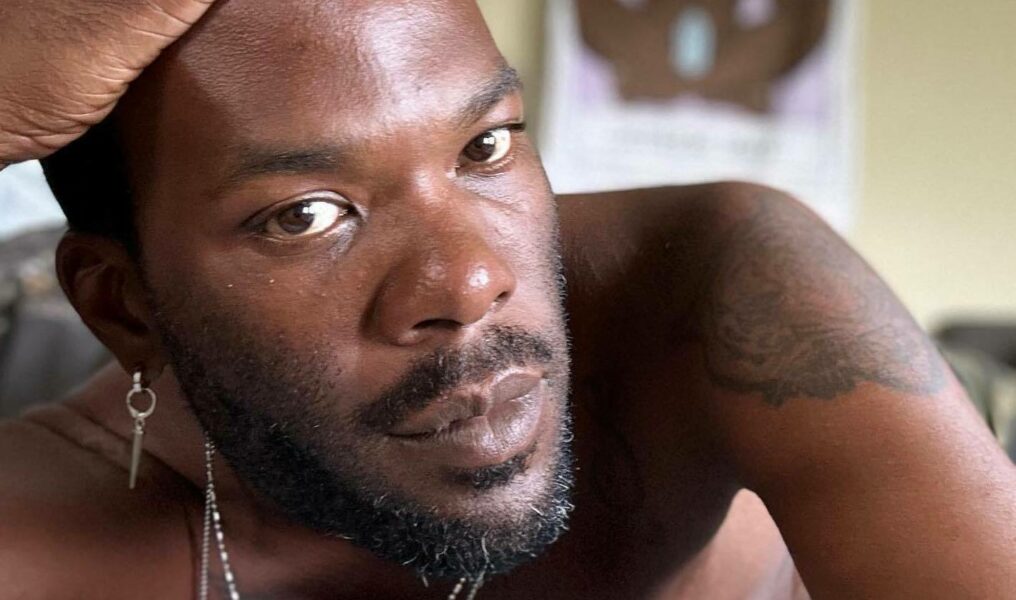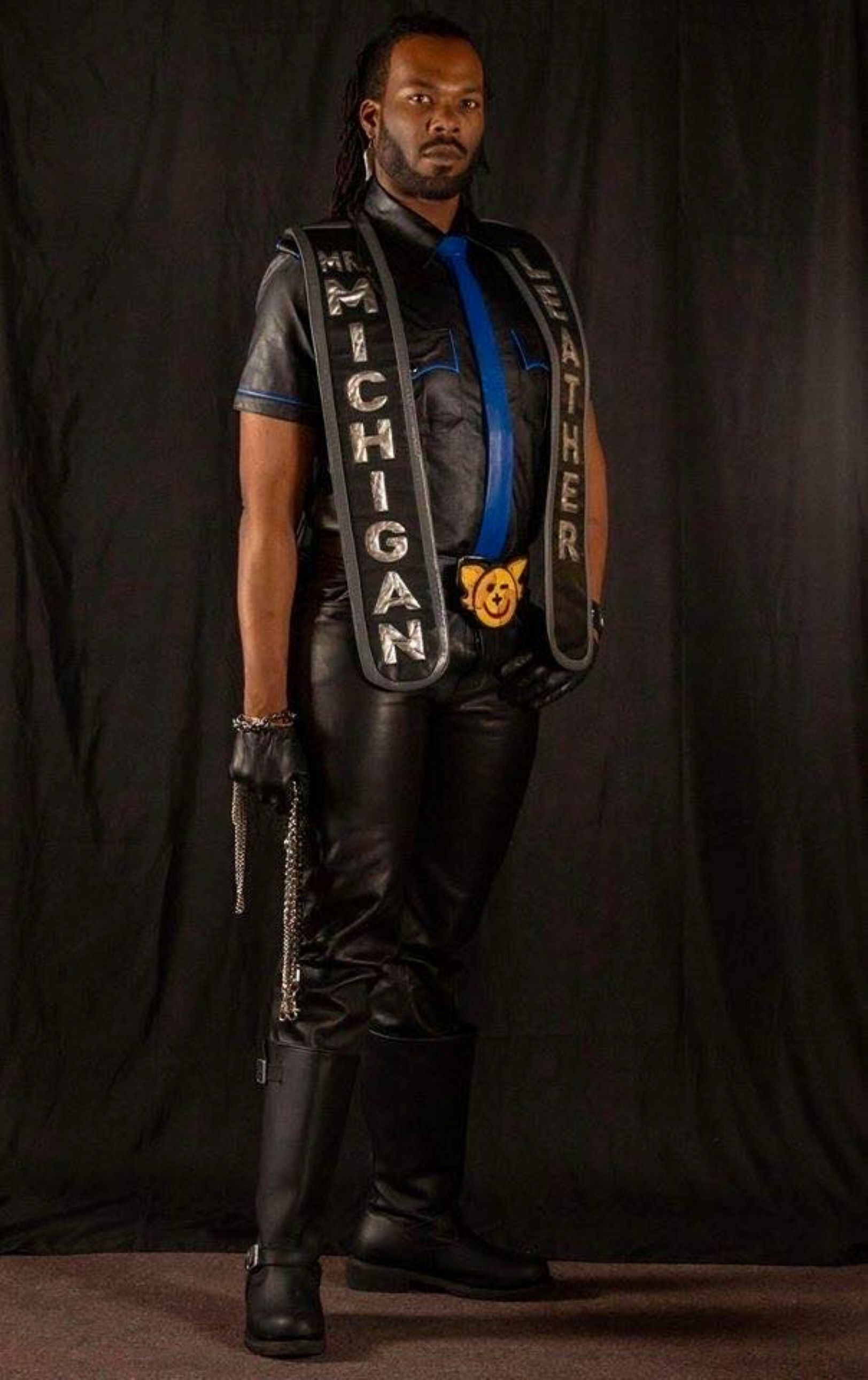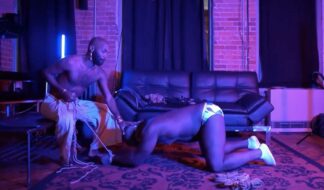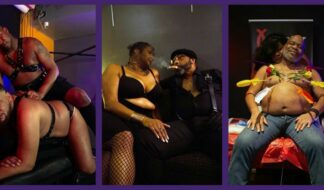‘It’s Hush-Hush’: Reflections on Black Visibility in the Queer Leather Community
As a new Mr. Michigan Leather is named, 2020 title-holder Tiger Onyx talks about being one of just a few Black winners

First, let’s take a moment to discuss a common rite of passage for queer people that’s not always talked about: accidentally stumbling upon a leather or BDSM night at the watering hole. It typically happens near the beginning of being fully out, as you’re still feeling your way around nightlife and not knowing “the schedule” yet — when bear night is, when drag queen bingo is. And then next thing you know, you’re in your typical fast-fashion T-shirt and jeans and surrounded by a bunch of burly men in harnesses and leather pants. Your only reference to this is that it vaguely looks like a gathering of the Village People.
When it did happen to you (and it did, don’t lie), what was the image of those men in harnesses? It’s OK if they were mostly white. For decades, many kink scenes did resemble the late director William Friedkin’s 1980 film “Cruising” — sleazy, but segregated. A variety of factors, not the least of which included just coming out of the closet, contributed to this. But as recent years have shown us, that’s changing.
Tiger Onyx, a Detroiter and regular at leather nights in the area, was named Mr. Michigan Leather (MML) for the year 2020, becoming one of the only Black contestants to hold such a title. During the upcoming MML, set for Sept. 22-24 in Douglas, a new title holder will be announced as last year’s winner Dustin James passes the torch.
Originally held at The Cell Bar in Grand Rapids, MML began in 1995 as Mr. West Michigan Leather. In 1996, the event changed its name to Mr. Michigan Leather, growing from a single-day event into a full weekend focused on education, fundraising and camaraderie, culminating in the Mr. Michigan Leather Contest.
As for Tiger’s victory a few years back, it wasn’t something he set out to do, he says, but he realizes the significance of once holding the title even four years later, as more Black queers across the state get into kink scenes.
“We had people of color willing to stand up, and they wanted change when it came down to being title holders,” Tiger says. “And running for these titles…how can I put this? When they decided to step up and run and were actually able to win, it was time. We were tired of being excluded. We were tired of being pushed back. We were tired of being seen as sexual objects. So what other way to make your presence [known] than going in and switching up the situation?”
Tiger’s path into leather was laid well before his adulthood. In 1993, the educational and community-driven organization ONYX formed with the “mission to educate and empower gay and bisexual Men of Color who explore the leather lifestyle.” It has grown to nine regional chapters across the country. Michiganders originally were grouped into the Midwest chapter, but there was enough interest to spin off a Great Lakes chapter that includes Detroit, Chicago, Cleveland and Toronto.
In the last 30 years, ONYX has provided a safe space for gay men of color to explore leather. A front-facing objective was to show power in numbers — if a community of LGBTQ+ people of color could form around a kink dominated by gay white men, they could show up and work together toward the common interest. But recruiting shy or reluctant queers into the fold, Tiger says, is just as much of a goal. "Part of my platform as a title holder is to make connections not just outside of the backrooms but the community as a whole."
"There’s not a lot of correct information about the leather lifestyle," Tiger adds. "Everybody thinks it’s automatically about sex, and the whole hypermasculine lifestyle that is played up in media."
Chalk that up to, well, maybe the innuendo of the leatherman in the Village People, the rough trade in "Cruising" and the general Tom of Finland-esque image of what leather suggests. It's more than sex, Tiger says, but even then, the enjoyment of consensual sex shouldn't automatically be a disqualifying factor. And even then, sex doesn't even have to be the No. 1 driving factor; as with most kinks, it's not a requirement. In the end, it's always about community and expression.
"Leather is what you make of it. Some people are here for the rituals and traditional side of it. There is a spiritual aspect to leather and BDSM,” he says.

Among Black members of the LGBTQ+ community, Tiger understands why there is hesitation. That's mainly because even as groups like ONYX and Black titleholders exist across many scenes, visibility is still lacking.
"There's the taboo in our community… there is not enough information about it,” Tiger says. “The people who are interested in it, they’re scared of it — it’s hush-hush."
The look of leather is changing, which is something Tiger is confronting head on. Brimmed leather caps, harnesses, chaps and leather jocks — in all black — will, of course, still be a community mainstay. But increasingly there are other fashions entering the fold, and not without some pushback.
"When I came out, even with the start of my title year, my look was bodysuits and fishnets and mesh — which is fetish attire, right?" Tiger says. "I was considered more of a kinkster than leather [person]. When I won, I was attacked because you have the option of your jock and harness or fetish attire, and I wore a white fishnet bodysuit. A guy on the internet was like, 'How are you representing a man looking like that? Are you even a man? Do you even have a penis?’"
But, Tiger says, "Honestly, now in 2023, it’s more accepting than it was in 2019. A lot of that is because people’s tastes are changing, style is changing. We’ve argued and showed up and represented enough to wear your mesh underwear and harness."
The ultra-butch identity is also evolving. "You didn’t see a lot of non-binary people in leather, and now it’s here," Tiger says.
To bring it back to a local level, Tiger says a major source of friction was when the West Michigan leather community first merged with the Detroit-area leather community to form the Mr. Michigan Leather community.
There's not much more to be said about the statewide divide that exists everywhere; the western side of the state is more white, and often more conservative, while the eastern side has the Blackest city in the country. Years after the two merged, there is still optimism around Michigan as a whole to tap into the power of numbers; after all, it’s not only about winning competitions, but fostering a sense of community around a lifestyle that is persecuted at large.
"We need to continue to move forward," Tiger says. "For those of us who are new coming in, they need to be open to the traditions that are there. And for those of us who have been there, they need to be open to new ideas, because that is the only thing that will keep us moving forward."









